Question And Answer
Publications
Articles, publications, books, tools and multimedia features from the U.S. Institute of Peace provide the latest news, analysis, research findings, practitioner guides and reports, all related to the conflict zones and issues that are at the center of the Institute’s work to prevent and reduce violent conflict.
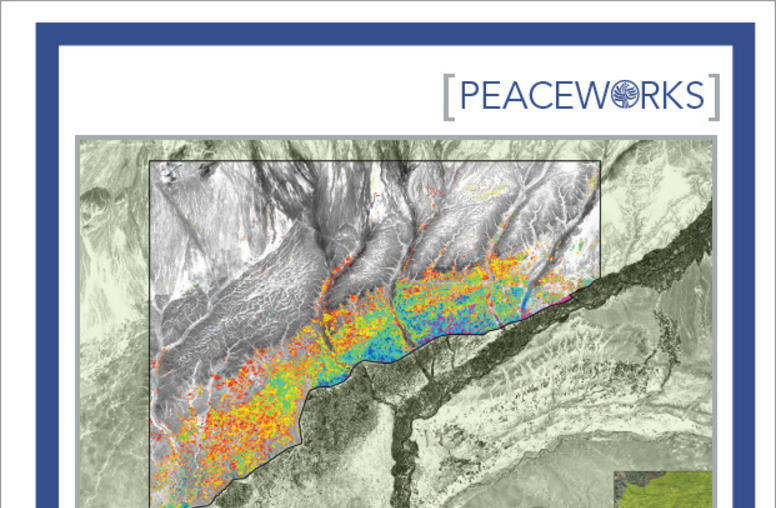
Afghanistan Post-2014
Geospatial analysis and mapping have a critical role to play in reconstruction efforts in conflict-affected regions. This report explains the core problem in typical data collection techniques: bias. Data is collected only where collection is safe and thus is not representative. To be more effective, development programs need more in-depth analysis of their reconstruction efforts, even in the most insecure spaces.
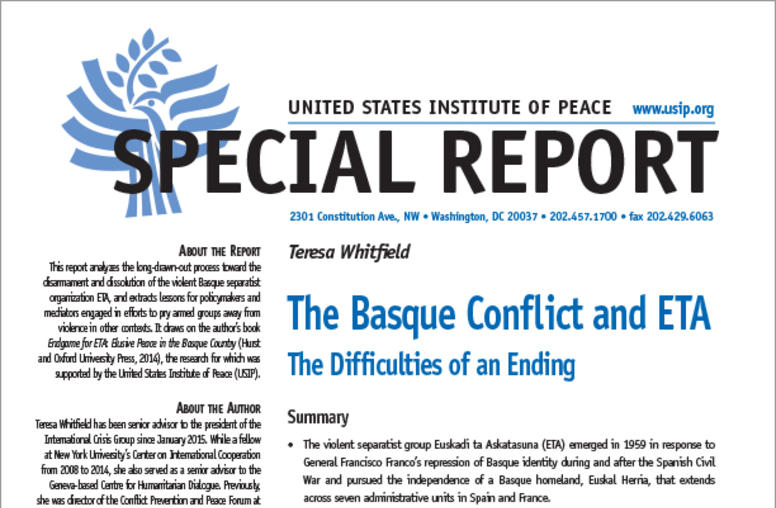
The Basque Conflict and ETA: The Difficulties of an Ending
Violence at the hands of the Basque separatist organization ETA was for many years an anomalous feature of Spain’s transition to democracy. This report, which draws on the author’s book Endgame for ETA: Elusive Peace in the Basque Country (Hurst and Oxford University Press, 2014), explains why this was the case, examines both the factors that contributed to ETA’s October 2011 announcement of an end to violence and the obstacles encountered in moving forward from that announcement to disarmame...
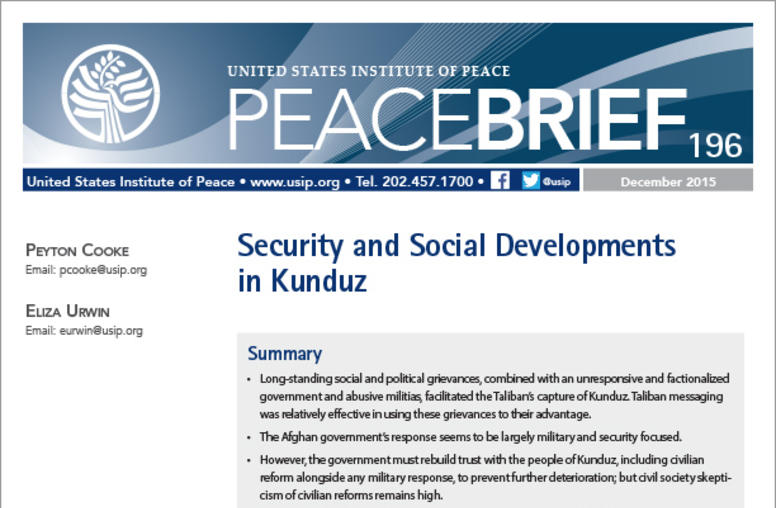
Security and Social Developments in Kunduz
Long-standing social and political grievances, combined with an unresponsive, factionalized government and abusive militias, facilitated the Taliban’s capture of Kunduz in September 2015. The fall of Kunduz raised questions regarding future political and security implications across the northeast region of Afghanistan. This Peace Brief highlights findings from interviews with a range of actors comparing what the government’s political and security response should look like and what it’s expec...
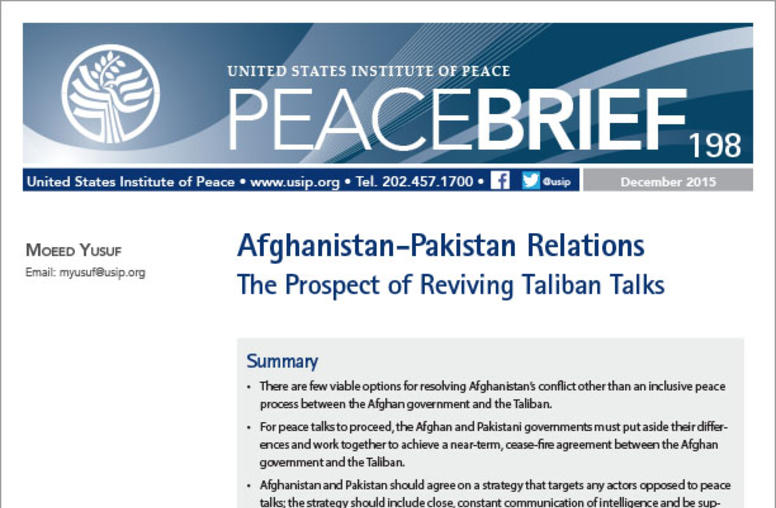
Afghanistan-Pakistan Relations: The Prospect of Reviving Taliban Talks
There are few viable options for resolving Afghanistan’s conflict other than an inclusive peace process between the Afghan government and the Taliban. Momentum toward this goal must be maintained following the “Heart of Asia” Ministerial Conference on December 9, 2015, where Afghan, Pakistani, and U.S. officials renewed their commitment to resuming dialogue. This brief discusses three key concerns that need to be addressed to effectively move the peace process forward and achieve a near-term ...
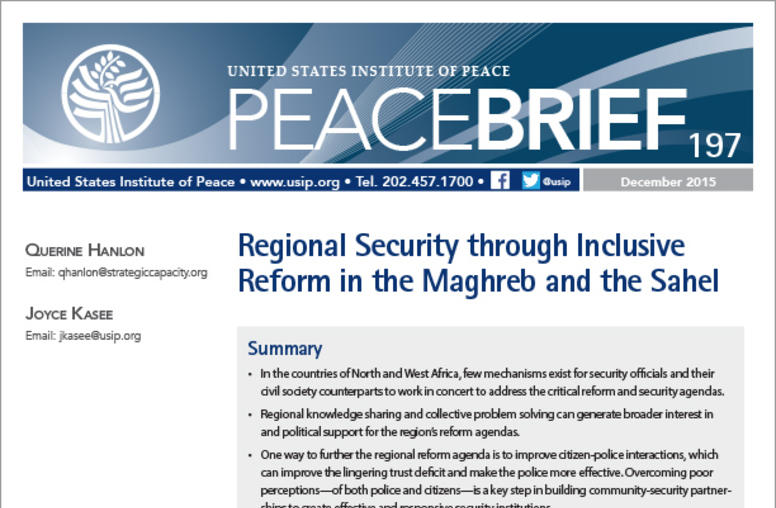
Regional Security through Inclusive Reform in the Maghreb and the Sahel
Throughout the Maghreb and the Sahel, governments are struggling to manage a security environment fundamentally transformed by the Arab Spring. Within this region, the efforts of governments to secure their territories and civil society organizations to create accountable and transparent security institutions have proceeded almost wholly divorced from each other. This Peace Brief shares key insights from the engagement between official and civil society actors both within and across borders t...
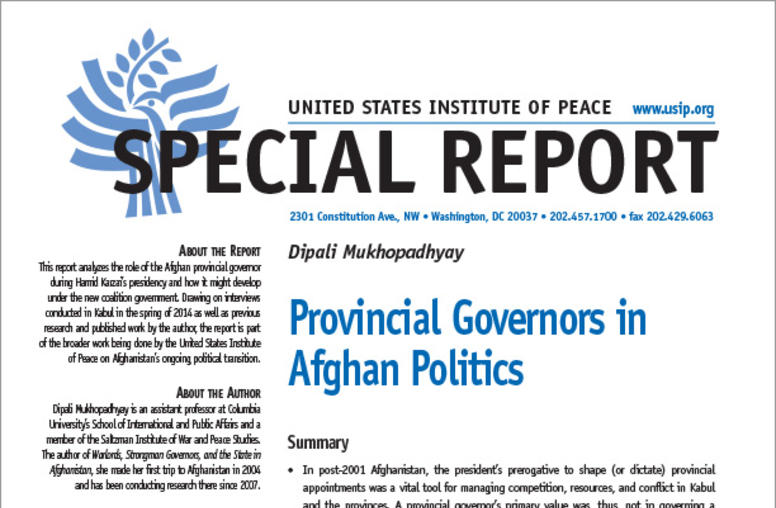
Provincial Governors in Afghan Politics
The presidency of Hamid Karzai was a significant transition for Afghanistan. This report describes subnational politics—specifically, provincial governorships—over the period in general terms, exploring the gaps between assumptions that drove belief in the possibility of a radically new and improved brand of governance and the realities on the ground. The findings aim to inform a more realistic outlook not only on Afghan politics past and future, but also on subsequent foreign-led interventio...
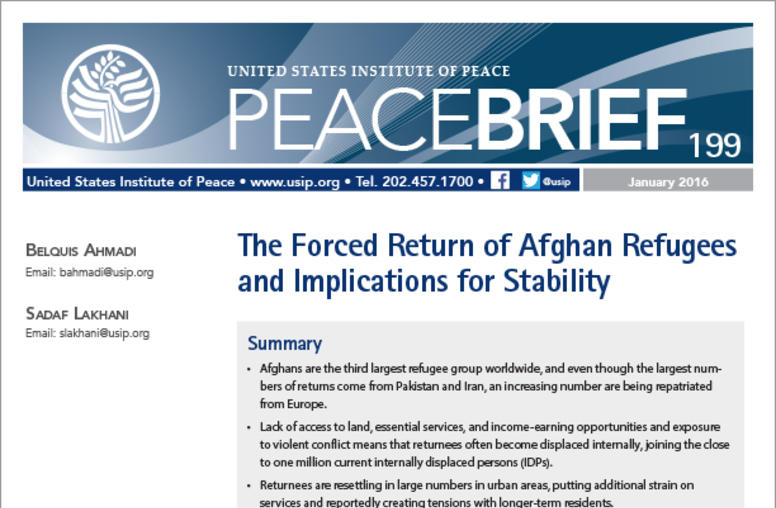
The Forced Return of Afghan Refugees and Implications for Stability
Afghan refugees have been returning home from Pakistan and Iran in growing numbers, and many of these returns have been involuntary. The situation is adding stress to an already challenging environment, characterized by insecurity, lack of access to employment and services, land and housing tensions, and rapid urbanization. This brief presents important considerations for developing a clear, well-coordinated strategy that addresses the impacts of large-scale returns and the specific needs of ...
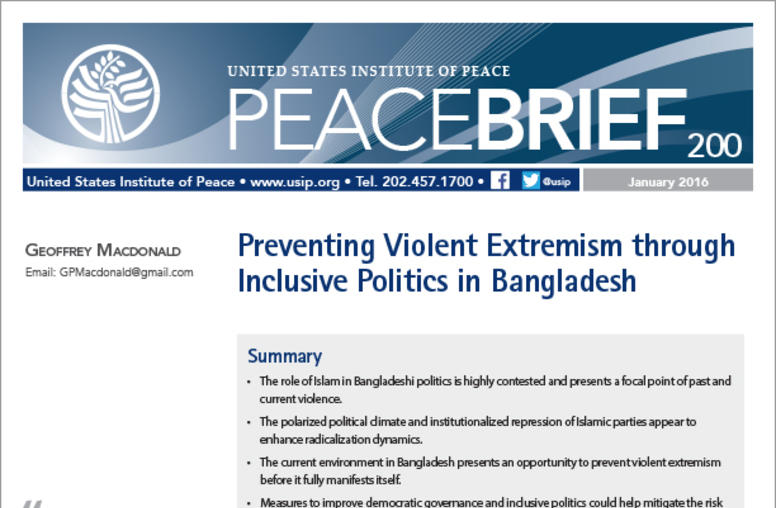
Preventing Violent Extremism through Inclusive Politics in Bangladesh
Bangladesh has a long history of political and electoral violence that has shaped its political culture. Since the early 2000s, it has experienced a renewal of violent extremism and an increasingly polarized political climate. By addressing the relationship between radicalization and institutional dysfunctions, this Peace Brief examines how Bangladesh can help undermine the issues that bolster radicalization efforts by strengthening political and social institutions and making them more inclu...

Resources over Reform in Afghanistan
The election of Ashraf Ghani as president in 2014 gave Afghans and the international community hope that political reform was on its way. However, thus far, little has been achieved to improve governance and reduce corruption, especially at the local level. Based on interviews conducted in four communities in Afghanistan, this report reveals that economic and security changes are having the greatest impact on local politics, keeping the powerful elite in positions of influence as they compete...
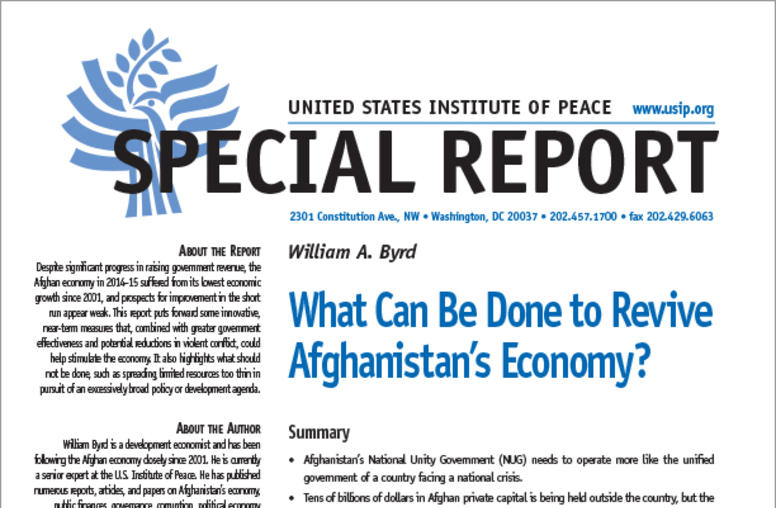
What Can Be Done to Revive Afghanistan’s Economy?
Reviving the Afghan economy during a time of intensifying violent conflict, declining external financial aid, and ongoing political uncertainty and dysfunction will be extremely challenging. But the country cannot wait for these entrenched problems to be addressed. While keeping expectations modest, this report proposes some targeted, near-term measures to increase confidence and stimulate the economy. Rather than engaging in politics as usual and following conventional policy prescriptions t...